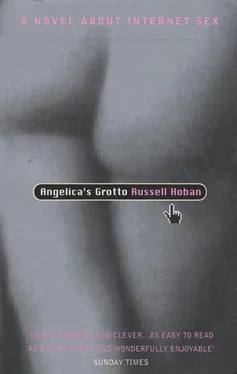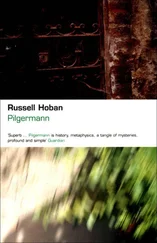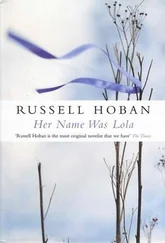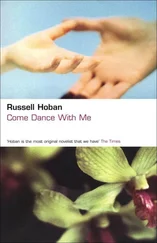‘How high, would you say?’
‘I think an estimate at five to seven hundred thousand pounds would be appropriate but I’d like to do further research and consult my colleagues on this if you can leave the painting with us.’
‘Of course. When would the auction be?’
‘Say ten weeks. Between now and then with your permission we’ll tour the painting and arouse some interest. Naturally it will be fully insured.’
‘Sounds a good idea.’
Mr Duclos explained the rate of commission and VAT, graciously waived the illustration fee, and a provisional contract was drawn up. They shook hands, smiled and nodded at each other, and Klein found himself in King Street walking away into the iron-hard sunlight. He felt, as an amputee might feel the tingling of a missing leg, the tingling of Pegase Noir.
The Peacock Theatre was in Portugal Street, off Kingsway between Holborn tube station and the Aldwych. Walking down Kingsway Klein hummed ‘ El Choclo’. He owned more than twenty tango CDs and enjoyed them all, from the earliest onward through Gardel to Piazzolla. When working at his desk he was very careful to provide himself with a musical background that was supportive but not intrusive; lately he’d been listening to tangos more often than not.
He was surprised at how good he felt. ‘Even now,’ he whispered into his hand, ‘burdened with infirmities as I am, I find myself experiencing joie de vivre every so often, especially when walking downhill.’ The lights were bright, the Christmas decorations insistent as always but he ignored them. The evening was cold and clear, there was a sparkle in the air.
Klein was a half-hour early — he always was — but even so the pavement outside the theatre and the lobby were both crowded. The audience, many of whom, young and old, looked like dancegoers, would be a lively one. He bought a programme and a coffee and had another look at an item he’d noticed in the last Observer, reported by Roger Tredre under the headline ‘Grim Reaper is “kind and patient”’:
Mark Chorvinsky, publisher of Strange Magazine, told Unconvention 98, the fifth annual Fortean conference, yesterday: ‘For centuries the Grim Reaper has been a cultural icon but it is not generally known that he exists.
Chorvinsky told the London meeting that he had collected reports of more than a hundred sightings, mostly in the United States, and appealed for British eye-witnesses.
Many of the reports were from nurses. ‘In many cases, the Reaper is far from threatening. He seems to be waiting rather than actively seeking deaths. The Reaper in real life is kind and patient.’
‘Death as a friend,’ whispered Klein, remembering a drawing by Rethel, ‘Death in pilgrim dress, with the scallop-shell badge of Santiago de Compostela, tugging on the bell-rope in a church tower high above the town, tolling the bell for the old sexton sitting dead in his chair. BONG! BONG! Probably the pigeons all scattering on the spreading sound-ripples, BONG! BONG!’
‘Were you speaking to me?’ said a woman who looked like Edna Everage.
‘Sorry, I talk to myself sometimes.’
‘I should get a cat if I were you. Or have you got one?’
Klein shook his head.
‘Of course you couldn’t bring a cat into a theatre. I suppose you must simply learn to think out loud more quietly.’
‘Yes,’ said Klein, ‘and if you’d stop talking I could carry on thinking. Sorry!’
‘Really! I suppose one mustn’t expect good manners from Americans!’
‘Or from women with harlequin glasses,’ said Klein, and moved to another part of the room. ‘Surely,’ he continued to himself, ‘he wouldn’t have come for Hannelore wearing black and carrying a scythe, that would have been so tactless. A cardigan and old corduroys, maybe, like someone working in his allotment.’ At this thought the tears started from his eyes and he didn’t know what to do with his face except cover it with his hands.
‘Are you all right?’ said a young woman standing near him.
Klein wiped his eyes. Her voice was warm, her face open and interesting. ‘Thanks,’ he said, ‘it’s just a little memory attack. Where were you when I was young? Sorry, that just slipped out.’
‘Not yet born, I should think,’ she said, and turned away.
‘We were talking about Death,’ Klein whispered into his hand.
Death as a friend, said Oannes.
‘Or as an editor,’ whispered Klein, ‘writing Delete? in the margin.’
Eventually he was able to go to his seat; the appointed time arrived, the house lights dimmed, the music began with ‘Milonga de Mis Amores’, the murmur of the audience ceased; the curtain went up to reveal shadowy musicians and the gleams of instruments in purplish light and smoke, and the first couple appeared, dancing to ‘La Cumparsita’. Tango followed tango; the couples changed, sometimes the stage was full of dancers, sometimes there was only a single figure obedient to the unremitting exactions of the music.
That music, breathed in and out by the bandoneon and augmented by double bass, violin, saxophone, flute, and piano, contained the dance, and the dance caught the dancers in a web of urgent and elegant evolutions: swivelling of hips and scissoring of legs, back kicks and caracoles and discontinuities of embrace. In their partnerships the heat of sexuality was refined into the negotiations of experience: sometimes the woman took charge; sometimes the man; the women like man-devourers ready to surrender utterly; the men as if they had been born with gold fillings and two-tone shoes.
In the second part of the programme, after Piazzolla’s ‘Libertango’, Roxana Fontan, beautiful and Goyaesque in black and glittering silver, took the stage alone to sing the Villoldo classic, ‘El Choclo’. Her silky mezzo was both delicate and powerful, her delivery now reflective, now assertive, always seductive. ‘Con este tango nacio el tango,’ she sang, ‘y como un grito salio del sordido barrial buscando el cielo’ (With this tango the tango was born, and like a cry it left the squalid slum, seeking the sky). Sometimes as the song went on she leant back into the words and caressed them, sometimes she sent them out like calls to battle. Klein had no Spanish, didn’t know what the words meant, but they seemed vitally important to him, seemed the very flame of life in the darkness — he whispered this thought into his hand. ‘Luna en los charcos,’ she sang, ‘Canyengue en las caderas …’ (Moon in the puddles, canyengue [pronounced canjengay] in the hips …).’
‘I can’t actually put canyengue into English,’ said the Argentinian translator Klein found in the phone book the next day. ‘It’s a lunfardo word,’ she said. ‘Lunfardo is a local vocabulary in Buenos Aires and it’s used a lot in tango lyrics. Canyengue carries the idea of the suburbs and the common person of low social condition whose manner of dancing the tango is earthy and full-blooded with no added-on refinement; canyengue in the hips means dancing with the real feeling of the tango.’
‘Canyengue,’ said Klein to himself later. ‘Canyengue in the mind, from the outlying districts of the cerebral cortex and the limbic system. Either you have it or you don’t. Right, Oannes?’
No answer.
Being a Jewish atheist, Klein always half-expected a brick through his window in the Christmas season. No one chalked CHRISTKILLER on his door but child carollers menaced him with ‘We wish you a Merry Christmas’ and public-school boys politely intimidated him with holly wreaths which he bought several of. Christmas trees bloomed in windows all around him, and some houses sported external twinkling lights.
Читать дальше












